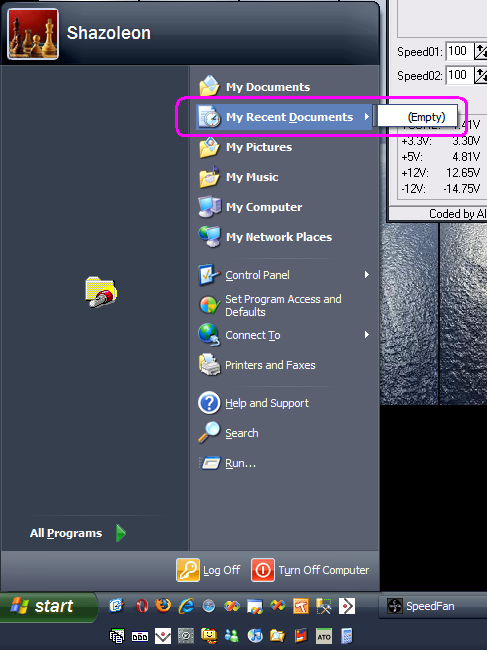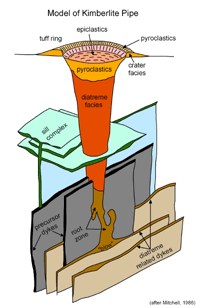Ever feel a little anxious? Here's 10 modern mental pitfalls familiar to today's office worker.
These problems can seem to blend into each other, but are each distinct problems, that can be attacked separately.
problems
- Information overload
- News overload
- Skill reinvention
- Always on
- Interruptions and alarms
- Increasing expectations
- Multi tasking
- Paradox of choice
- Fractured time
- Sociopathic social overload
Information overload
There is so much information available that no human being can possibly digest it.
This concept is so familiar now that it's almost docile in relation to the problems that follow. Alvin Toffler first coined the term, way back in 1970 before most of you were even born.
News overload
If too much information was the only problem, then you could slowly digest it, or read summaries of it. Eventually, throughout your lifetime, you'd move closer to having a handle on it all. But in fact there's a stream of new information being added to the information overload, and the rate of new information is increasing.
Every day, regardless of how much effort you make to learn, you know an ever smaller percentage of what is knowable.
Skill reinvention
New stuff is not just meaningless gossip either. Some of it is very deep and useful. New technical skills are harder to absorb than news items. By definition, you can't acquire a skill by reading about it alone. You have to practice it, over and over, to have any hope of acquiring it.
And no sooner have you begun to master an important new technical skill, than a new technical skill is announced as The Way. (Coping hints here)
The first three problems add up to create a classic Red Queen's Race:
"...it takes all the running you can do, to keep in the same place. If you want to get somewhere else, you must run at least twice as fast as that!"
Always on
The information, news and new skills don't turn up at nicely scheduled times, either. Thanks to mobile phones, blackberries, pdas, ipods, laptops and home offices, it's possible to be voluntarily connected to the infomonster at every moment and in every place.
Consider this: evolution is a nasty business where only the fittest survive. Yet evolution hasn't cured us of the need to sleep eight hours a day. Primative society was also rough and mean -- yet it afforded its members a day of rest each week. Modern technology is rougher and meaner than both evolution and primative societies put together. Work harder you damn slacker!
Interruptions and alarms
Information doesn't sneak up quietly: it noisily announces itself, with alarms and popups designed to put you on edge! IM, skype, email and all the afore mentioned 'always on' devices are just waiting to rattle your nerves. The layout in a Cubicle farm does nothing to limit physical/noise interruptions. There are also car alarms, home alarms, fire alarms, smoke alarms, and many others, all equally 'important'. (Raganwald's lashed out about this in the past)
Increasing expectations
Our standards increase to swallow most productivity gains.
For example (I heard this on a gtd or .net podcast... if anyone knows the source, please share) Prior to the 1950's, there were no washing machines, and the avg. household spent 6 hours per week washing clothes. The invention of the common domestic washing machine was proclaimed to be a great liberator... but the net effect today? We continue to spend 6 hours per week washing clothes, only we now do 10 times as much washing. i.e we have cleaner clothes & more of them -- but we're still just as much a slave of our tasks.
Similarly, producing a document today in Word 11 takes just as much time as it did in WordPerfect 1.1 -- the output should be considerably nicer, but then again, the reader is expecting a nicer output. So what did we gain exactly?
Apparent multi-tasking
Our operating systems support the appearance of performing more than one task at once. We humans trick ourselves into believing we're capable of working on more than one task at a time.
Favourite articles on this include, Human Task Switches Considered Harmful - Joel on Software and Coding Horror: The Multi-Tasking Myth.
A symptom of the previous three, is the concept of "Busy Work" -- the ability to appear busy while not actually getting anything done. Example: checking your email.
"No one really multitasks. You just spend less time on any one thing."
(from ADT Article)
Sociopathic social overload
I can't even begin to explain this one. You can talk to 150 IM buddies, send and receive a hundred emails -- complete social overload really... and yet this can be accompanied by no real physical interaction with anyone at all, ever. Facial expressions, body language, voice intonation, the wonders of touch... all of this gets compressed into a couple of emoticons. Weird.
Here's an example from a friend of mine. He described how his son was sitting on the couch, playing with his Nintendo DS, when he was supposed to be taking the dog for a walk. Nothing too unusual there... except, he was playing Nintendogs (a virtual pet simulation) in which he'd created a virtual dog based on his real dog. His real life pet ended up being returned to the pound. Seriosly. I think that's a sign of something... we're overdue for an apocalypse I guess.
Paradox of choice
There are more options than ever before. And even the most trivial choices require some amount of thought. You can't opt out of all the options -- yet the cost of taking the time, choosing wisely, will often outweigh the benefit of a wise choice -- Analysis Paralysis.
Barry Schwartz is the guru who explains this best:
...we assume that more choice means better options and greater satisfaction. But beware of excessive choice: choice overload can make you question the decisions you make before you even make them, it can set you up for unrealistically high expectations, and it can make you blame yourself for any and all failures. In the long run, this can lead to decision-making paralysis. And in a culture that tells us that there is no excuse for falling short of perfection when your options are limitless, too much choice can lead to clinical depression.
(from Barry's page at Swarthmore)
Further info, Barry gave a talk at google explaining the Paradox of Choice. He has a book called 'The Paradox of Choice: Why More Is Less'. (Ironically, the book is available new or used, with or without super shipping, possibly as a companion to 'The Wisdom of Crowds', at any one of 58 different prices, depending on who you buy from -- aaargh!)
(Also -- there is this book "The Progress Paradox: How Life Gets Better While People Feel Worse" by Gregg Easterbrook which seems to be thematically similar... or you might want to peruse "The Era of Choice: The Ability to Choose and Its Transformation of Contemporary Life" by Edward C. Rosenthal... personally i don't know which one to choose!)
I think Segal's Law is quite relevant:
"A man with a watch knows what time it is. A man with two watches is never sure."
Fractured time
Everything is now available in 'Near Real Time' -- effectively meaning that every action involves a small delay. Rather than large delays which can be scheduled around and dealt with, we have many thousands of tiny delays, which cut up our time and give us just fractions of slack time -- a second, ten seconds, one minute, here, there and everywhere. Click a link and wait a tiny bit. Put food in a microwave and wait one minute. Switch from design view to source view -- and wait a few seconds. Compile your code, and wait a bit. If the waits were much bigger we could schedule for them and find a use for them. If the waits were reduced to zero seconds, then there'd be no 'mental stack stress'. But instead our attention is cut to pieces by this effect, and it provides a nucleation point for distraction.
Steve McConnell touches on this concept in the blog entry, "Is Faster Always Faster?". What I haven't seen investigated is the net effect of time-fracture on a person's psychological well-being.
Okay. Next week, let's write about how to deal with all of this. If we can find the time.







